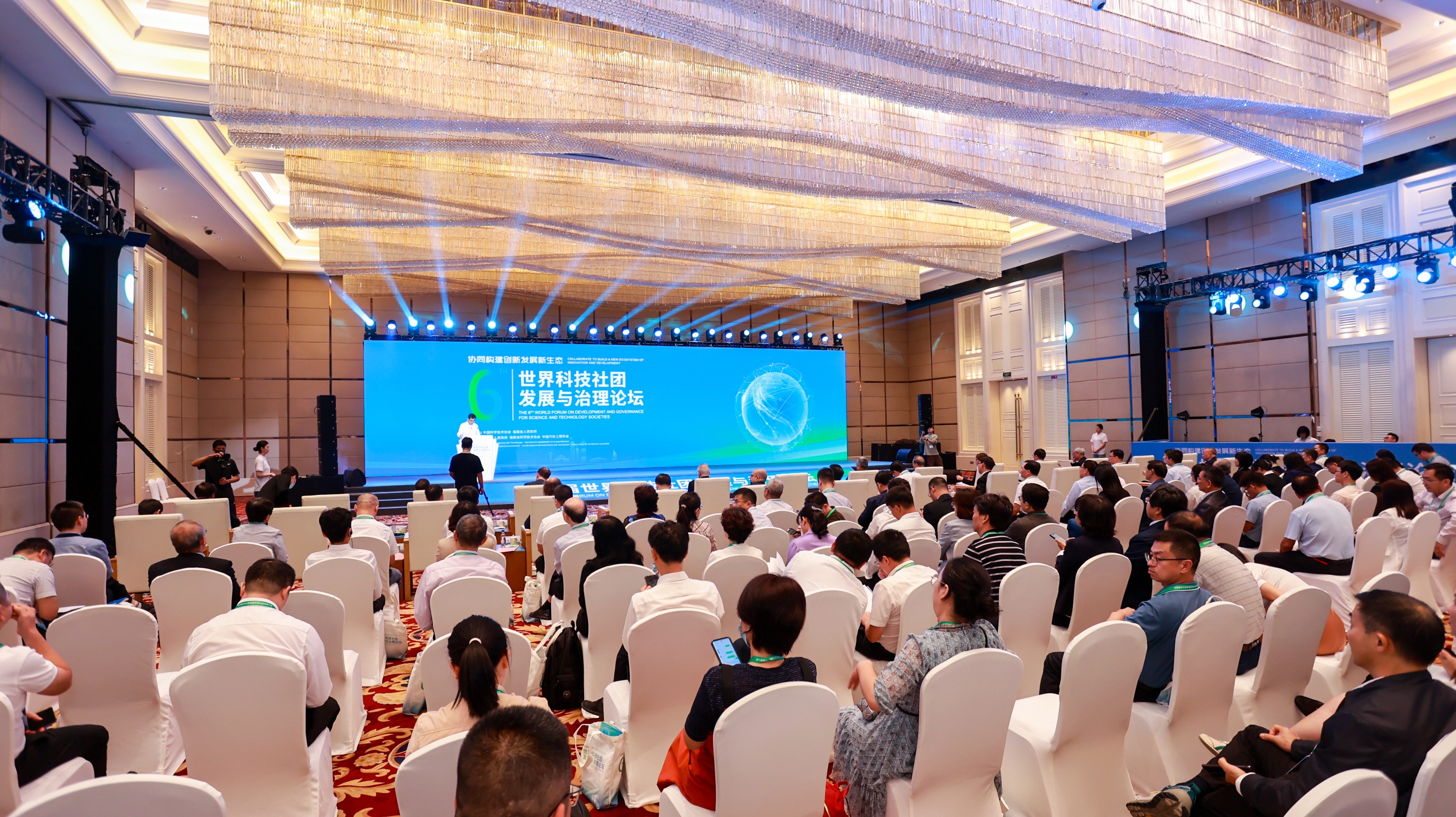No Global Solutions Without Sci-Tech

"Good science anywhere is good for science everywhere" is the core message of Saifur Rahman, Institute of Electrical and Electronics Engineers President and CEO, in his video address at the 6th World Forum on Development and Governance for Science and Technology Societies in Xiamen, east China's Fujian province, on November 7.
As sci-tech societies, the question arises: How can we harness the power of scientific advancements in one region for the betterment of all humanity? "We are facing significant challenges, for example, geopolitical issues. However, there are actions that can be taken by people's activities, and sci-tech societies can play a role that governments cannot fulfill. Events like today's forum provide excellent opportunities to establish connections and promote collaboration," Guo Huadong, academician of CAS and honorary president of international society for Digital Earth, told S&T Daily at the forum.
Meanwhile,Robin Peter Tensen, CEO of GlobalTech IP, pointed out the resistance to the trend of globalization in various countries. "In many countries, such as the U.S. and many European nations, individuals, especially workers, feel apprehensive about the process of opening up and the blurring of national boundaries." He said this sentiment is partly related to attitudes towards immigration and a concern that, for example, in the U.S., there may be a loss of dominance."It is my belief that the 'genie' is out of the bottle, and a reversal seems unlikely due to the efficiency and benefits it brings," said Tensen
Sudip Parikh, CEO of the American Association for the Advancement of Science told the forum about the significance of "data sharing and transparency" in addressing global challenges that transcend borders, such as climate change.
"We generate a large amount of data and then share it to improve monitoring and evaluation of sustainable development goals (SDGs). Chinese Foreign Minister Wang Yi on behalf of the Chinese government made a commitment to the United Nations, ensuring that the data collected by Sustainable Development Science Satellite 1 (SDGSAT-1) would be available for free use by all 193 UN member states, " Guo told the forum.
And according to Bob Cryan, emeritus president of Institution of Engineering and Technology, sci-tech societies are becoming more and more recognized as being extremely important. He told S&T Daily that the general public are starting to understand that without science without technology without engineers, global problems can't be solved.
"What we need to do is to look at the whole of our international community, to take the best minds from around the world, and get them to tackle the problems. That's the only way that humanity can continue to develop and drive," said Cryan.
And the cooperation is built on trust, which is gained incrementally. Events like this forum help to increase communication among scientists. The collective efforts of sci-tech societies, in conjunction with collaborative data sharing and transparent practices, will play an indispensable role in addressing pressing global issues. The recognition of this critical role is steadily growing, underscoring the essential nature of scientific advancements in finding solutions to the challenges that transcend borders.







